Updates & Blog
Working for the trees: diverse and rewarding career choices in the forest sector
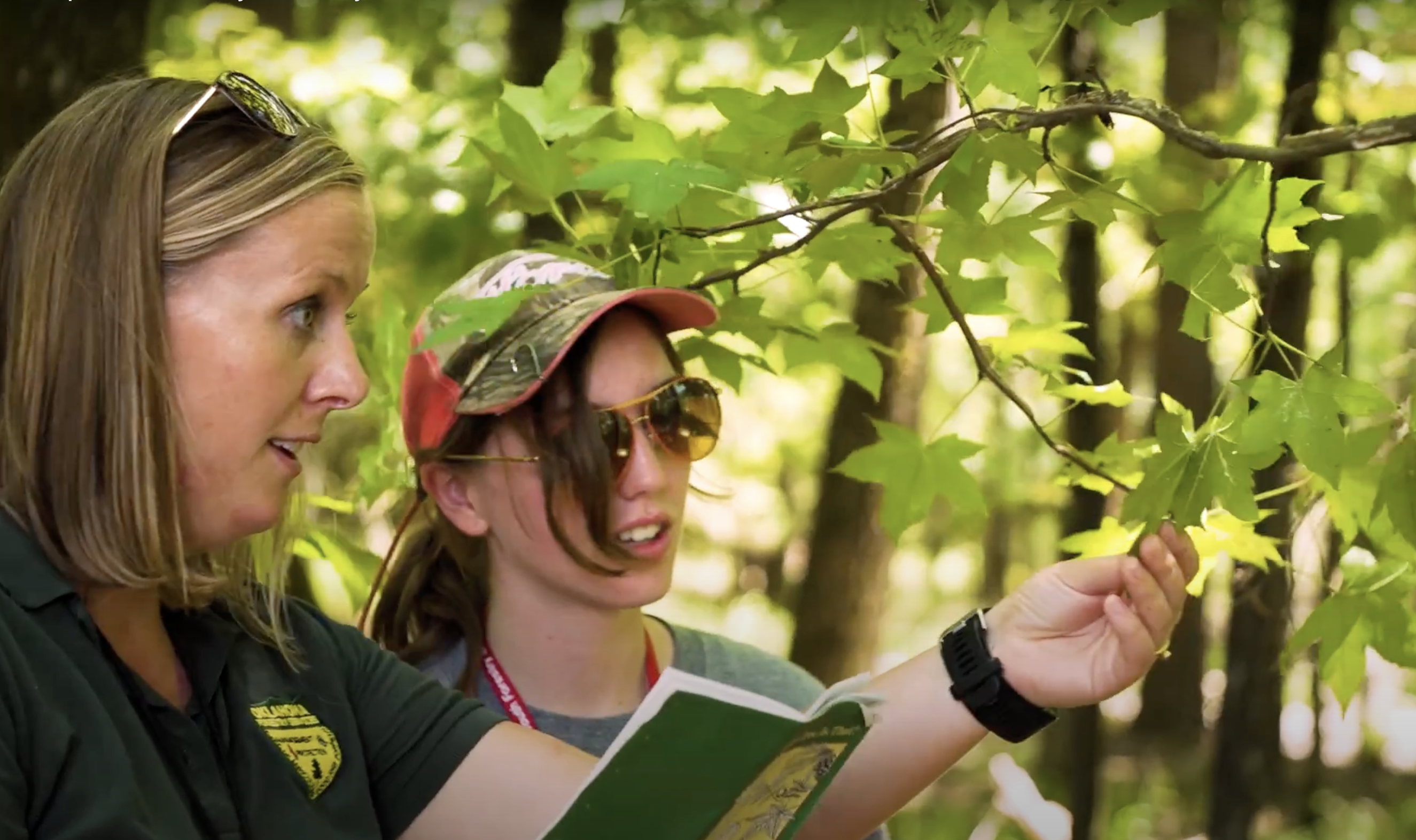
The forest sector offers a diverse range of rewarding career opportunities for individuals passionate about the environment, sustainability and making a positive impact. Whether you’re looking for outdoor adventure, scientific exploration or simply just want to make a difference in the world, there are a multitude of paths to explore. With increasing concerns about climate change, wildland fire management and sustainable use of natural resources, the demand persists for skilled professionals who contribute to these critical areas.
Forester
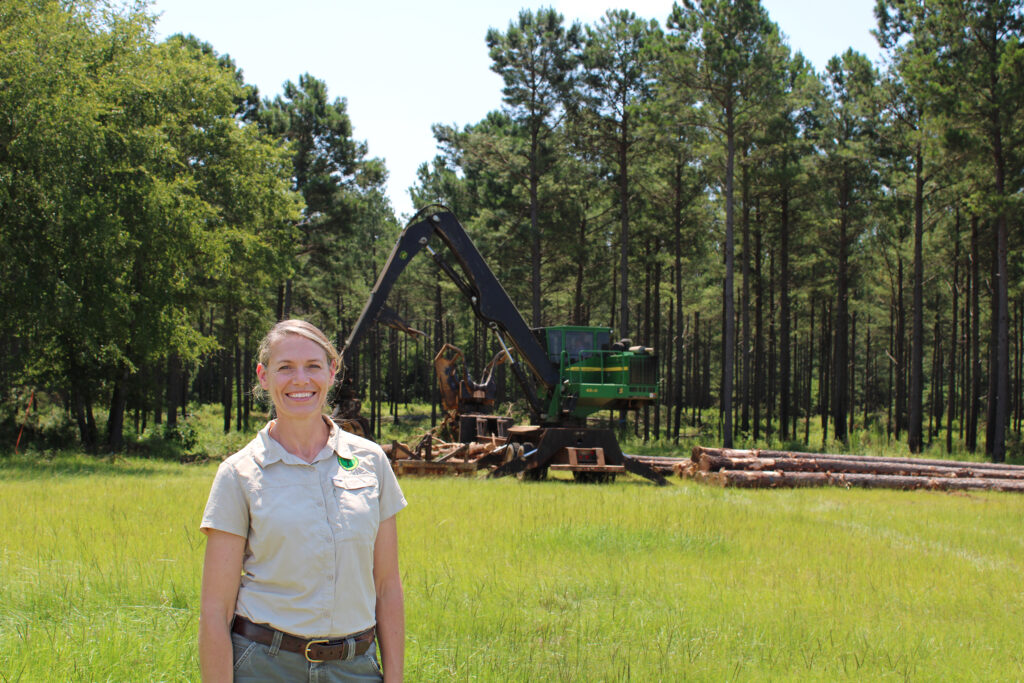
Foresters play a vital role in managing and sustaining forests. By working to maintain healthy communities and ecosystems, mitigate climate change, protect biodiversity and promote sustainable timber production, foresters contribute directly to environmental conservation and long-term sustainability. Whether conducting fieldwork, providing technical assistance to landowners, monitoring forest health or implementing forest management plans, foresters can enjoy a close connection with the environment they work to protect. The dynamic nature of this work keeps the job interesting and allows for continuous learning and growth.
I’m grateful for my career as a water quality forester because healthy forests are critical to the future of our drinking water,” said Holly Welch, Environmental Program Manager for the South Carolina Forest Service. “In my opinion, getting to help steward the land to protect water quality and benefit the greater good is one of the best jobs a person can have. Not only do I get to work outside with people who share my values, but I also get to do something that will benefit society for generations to come.
The need for skilled forestry professionals remains steady due to ongoing forest management needs, timber production and conservation efforts. The demand for foresters exists within various areas, including state and federal forestry agencies, municipalities, consulting firms, universities, non-profit organizations and private industry. Some steps you can take to become a professional forester include obtaining a relevant degree in forestry or related field, gaining practical experience through internships or volunteer work, pursuing professional certification from organizations like the Society of American Foresters, networking and building connections within the industry, and developing specialized skills such as GIS proficiency. Remember to consider local requirements and regulations specific to your region.
Forest Ranger
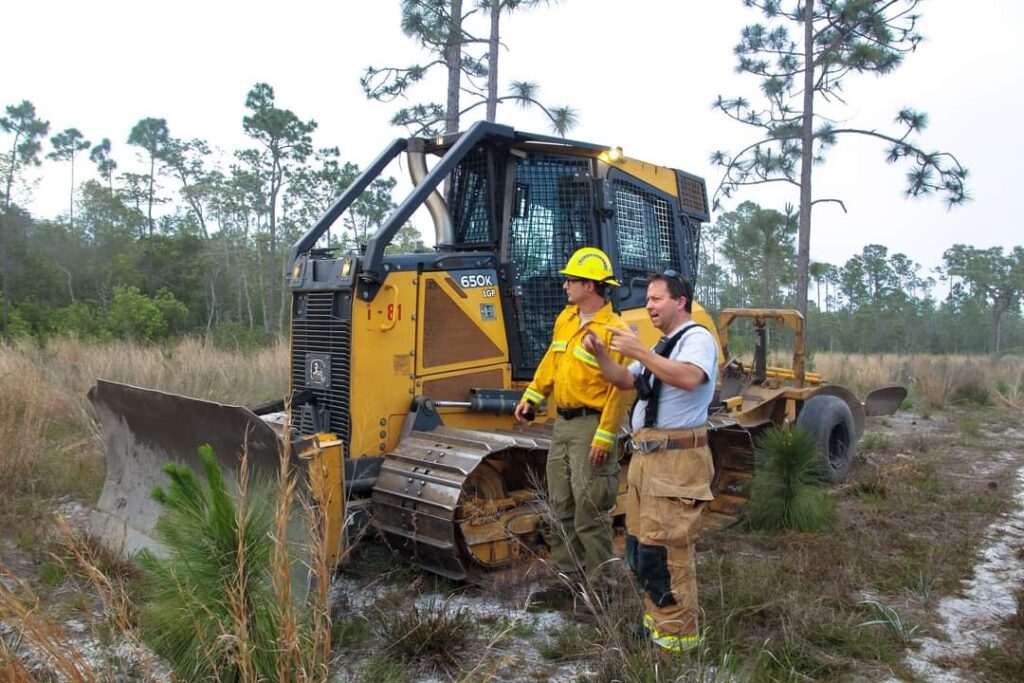
Choosing to be a forest ranger (also called a forest technician) can result in a fulfilling and rewarding career path for several reasons. If you enjoy being outdoors, working in nature and engaging in physical activity, this career can offer ample opportunities to explore and connect with forests firsthand. Forest rangers also engage in a diverse range of tasks, ensuring that no two days are the same. As a forest ranger, you may be involved in activities such as conducting forest inventories, collecting and analyzing data, assisting in research projects, operating heavy equipment and being on the front line of wildfires and wildland fire management activities. This variety keeps the work exciting and allows for continuous learning and skill development.
I like working at the Florida Forest Service because it gives me a sense of purpose and fulfillment,” said Tom Hopkins, Senior Ranger for the Florida Forest Service’s Blackwater District. “I enjoy being able to provide a public service to my home state of Florida and across the United States assisting in wildfire suppression and prevention.
Starting as an entry-level forest ranger can open the door to numerous career paths within forestry. It offers valuable hands-on experience and exposure to different aspects of forest and wildland fire management, which can lead to roles such as forest manager, area/region supervisor, wildfire operations manager, forest planner or pursuing further education to become a forester or forest ecologist.
To pursue this job type, seek employment with state or federal forestry agencies. Work to gain field experience through internships or volunteering, develop technical skills in data collection and heavy equipment use, stay updated on sustainable forest management practices and build strong communication and interpersonal skills. To advance in the field, demonstrate a strong work ethic and seek professional development opportunities to enhance your knowledge and skills. Embrace continuous learning, adaptability and a passion for conservation and sustainable forest management throughout your career journey.
Urban and Community Forester:
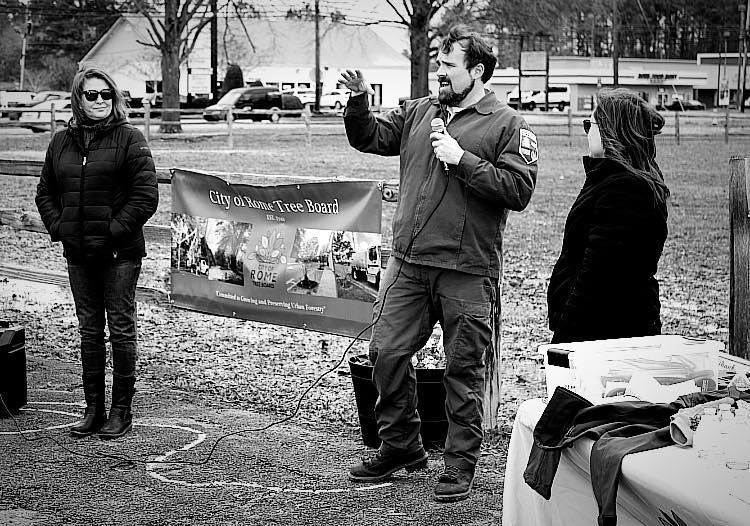
Urban and Community Forestry (U&CF) focuses on managing and conserving trees within urban areas. The southern states offer a network of U&CF coordinators across the region who monitor, measure and assess changes to urban forests while providing support, consultation and educational opportunities for local communities.
A career working in Urban and Community Forestry has provided me so many opportunities to learn from people in a wide array of skills, disciplines and backgrounds,” says Seth Hawkins, U&CF Coordinator for the Georgia Forestry Commission. “U&CF provides a great point of intersection between people, communities and the environment, and I truly love being a part of that.
To turn your passion for helping communities into a rewarding career in U&CF, start by gaining knowledge in arboriculture, landscape management and urban planning. Seek internships or volunteer opportunities with local parks, municipalities or non-profit organizations involved in urban forestry initiatives. Seth Hawkins’ advice for those interested in pursuing a career in U&CF? “Get involved in local tree groups – and obtain formal U&CF education and International Society of Arboriculture certifications.”
Forest Conservation Educator:
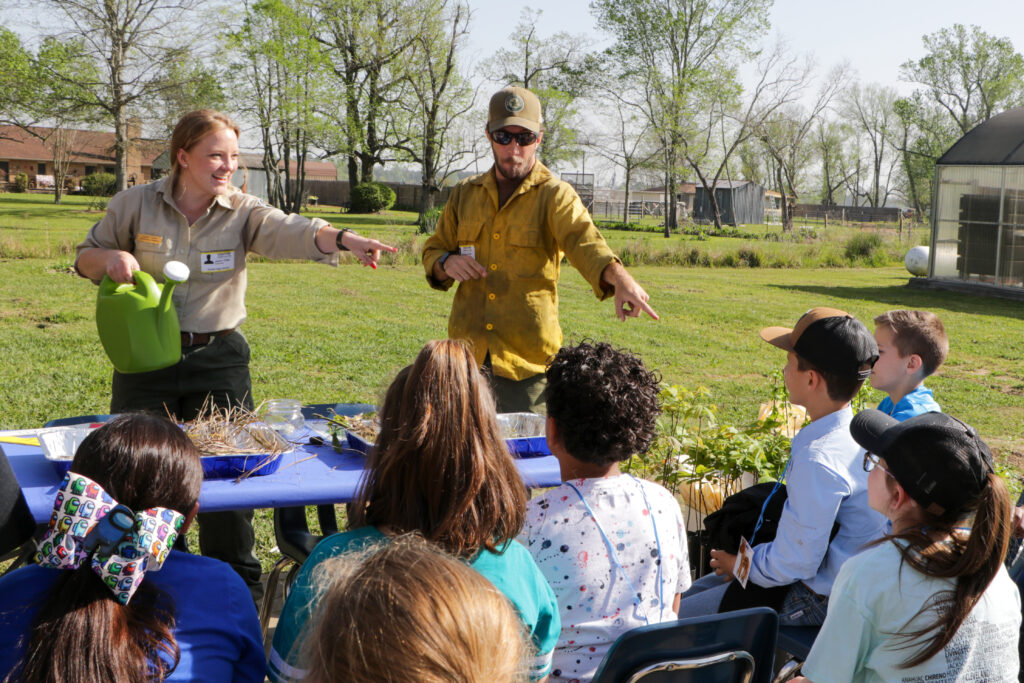
The words that perfectly sum up the power of conservation education are this: “We protect what we love. We love what we understand, and we only understand what we are taught.” – Baba Diom (Senegalese poet). As a forestry conservation educator, you can inspire and educate others about the importance of sustainable forest management and conservation. By promoting awareness, understanding and appreciation for forests and their ecosystems, you help foster a sense of environmental stewardship and a desire to protect and conserve natural resources for generations to come. As a conservation educator, you may engage in developing educational programs, leading guided tours, organizing workshops, creating educational materials or conducting research. For individuals passionate about nature and education, a career in forestry conservation education can provide immense personal satisfaction.
Conservation Education is more than just a job, it’s an ongoing passion project and way of life for those that are lucky enough to find themselves in this role,” says Jacey Tosh, Conservation Education Coordinator with the Texas A&M Forest Service. “It combines all the fun and the most inspiring elements of traditional education with the freedom and benefits of spending time in and around trees and forests. It’s one of the few jobs out there where you both wake up and leave everyday feeling energized, excited, and like you made a real difference in the world.
By combining formal education, experience and a passion for educating others about the environment, you can embark on a fulfilling career in forest conservation education. To pursue a career in this field, obtain a degree in education, forestry, environmental science or related field; gain practical experience through internships or volunteer work with nature centers or other environmental organizations; and develop strong communication and teaching skills. You may also consider completing a teaching certification or pursuing a master’s degree in education, if desired. Apply for positions at schools, environmental organizations, nature centers, forestry agencies or other government agencies that offer opportunities to educate others about forest conservation and sustainable practices.
Forestry Dispatch Operator:

Dispatch operators (sometimes known as duty officers) play a vital role in coordinating resources and personnel during wildland firefighting efforts, forestry operations or other emergency incidents. As a forestry dispatch operator, you are responsible for coordinating resources, communicating vital information and ensuring the safety and effectiveness of operations. Working as a dispatch operator offers a fast-paced and dynamic work environment where you’ll be involved in managing multiple tasks simultaneously, prioritizing urgent requests and making critical decisions under pressure. If you thrive in high-pressure situations and enjoy problem-solving, this career path can provide a constant sense of challenge and excitement.
Even though I’ve been on the job less than a year, I love it here,” says Will Stone, Duty Officer for the Florida Forest Service’s Lakeland District. “My co-workers are friendly and I feel like I am making a real difference in our community. I look forward to working in this department for many years to come.
By choosing a career in forestry dispatch operations, you’ll gain expertise in emergency management, incident command systems and resource allocation. Additionally, you’ll enhance your communication, organization and problem-solving skills, which are valuable in various fields and can open doors to advancement within incident management or related areas.
To become a forestry dispatch operator, seek employment with state or federal forestry agencies. Ideal candidates have strong organizational and communication skills, have familiarized themselves with emergency protocols and incident command systems, and have demonstrated proficiency in, or the ability to quickly learn, computer-aided dispatch systems and communication tools.
Tree Nursery Manager
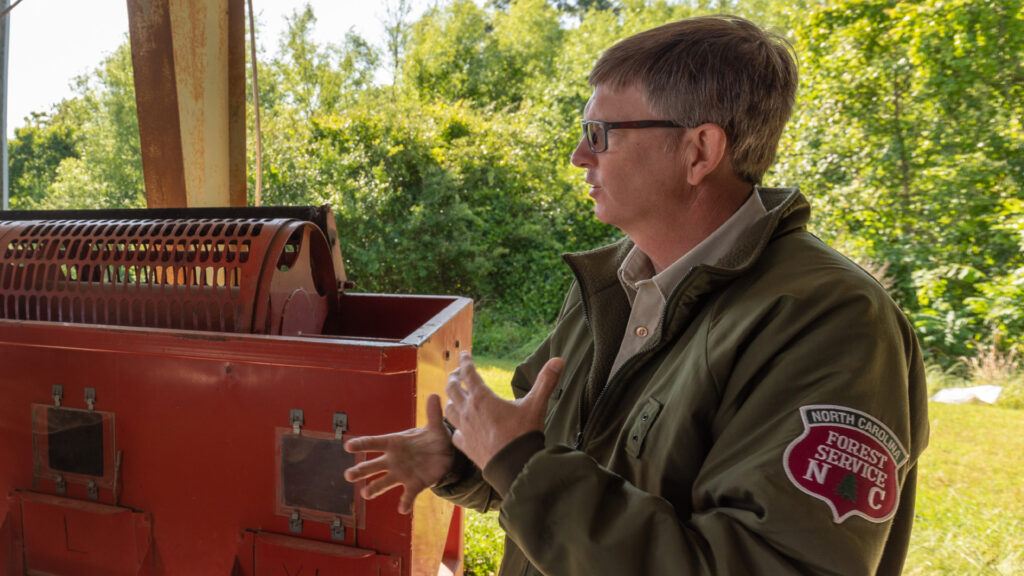
Tree nursery production plays a crucial role in supporting reforestation efforts, habitat restoration and urban greening. By growing and supplying healthy trees, individuals in this field contribute to sustaining timber resources, improving wildlife habitat, protecting water quality and enhancing natural ecosystems. Working in a tree nursery allows individuals to engage directly with nature and contribute to the growth and development of trees. It offers the opportunity to work outdoors, nurture plants and witness the tangible results of their efforts as trees are planted and thrive in various settings.
Through the breeding, testing and deployment of tree species, we are able to make a long-lasting positive impact on the landscape and the citizens of North Carolina,” says Bobby Wayne Smith II, Nursery & Tree Improvement Program Head for the North Carolina Forest Service’s Claridge State Nursery. “This career has afforded me the opportunity to be in touch with nature by producing more than fifty different native and regionally adapted species annually. I would recommend a career in nursery production to anyone that has a love for the land and a heart to serve.
Tree nursery production requires a range of skills, including plant propagation, cultivation techniques, pest and disease management, irrigation and inventory management. This career path offers the chance to develop a diverse skill set that can be valuable in various roles within the horticulture and forestry sectors. To become a tree nursery manager, pursue relevant education in horticulture or nursery management, gain practical experience in nurseries, develop relevant skills, acquire leadership and business management abilities, and stay updated on industry advancements. Adaptability, continuous learning and a passion for plants are key to success in this career path.
The forestry industry offers a wide array of career options for individuals passionate about the environment, conservation and sustainable resource management. By choosing a career in the forestry industry, you can make a positive impact on forest ecosystems, communities and the planet as a whole. Explore the various paths available, acquire relevant education and experience, and embrace the opportunities to contribute to the stewardship of our southern forests.
Other Career Paths and Areas of Interest
Forest Health/Pathology
In this field, professionals focus on diagnosing and managing diseases, pests, and invasive species that impact forest ecosystems. Pursue a degree in forestry, plant pathology or entomology. Gain experience through internships or entry-level positions with forest health organizations, state forestry agencies or private consulting firms.
Biology
Biology forms the basis of understanding forest ecosystems and the various interactions within them. A degree in biology or ecology is a great starting point to enter the forest sector. Explore opportunities with conservation organizations, research institutes or government agencies involved in biodiversity assessment, ecological restoration and wildlife conservation.
Timber Sales & Forest Products
Professionals in timber sales and forest products facilitate sustainable timber harvesting, ensuring responsible forest management. Gain knowledge in forestry economics, marketing and supply chain management. Seek employment with timber companies, forest products manufacturers, or forest management firms involved in sustainable timber operations.
Genetics
Genetics plays a vital role in tree improvement programs, where professionals work to develop disease-resistant, fast-growing and climate-adaptive tree species. Consider pursuing a degree in forestry genetics, botany or genetics itself. Look for opportunities with research institutions, private forest seedling nurseries or government agencies involved in tree improvement programs.
Information Technology/GIS
Information technology and geographic information systems (GIS) have revolutionized the forest sector. Professionals in this field work on data management, remote sensing and spatial analysis for forest planning and monitoring. Acquire skills in GIS software, programming and data analysis. Explore opportunities with government agencies, consulting firms or forestry technology companies.
Telecommunications
Telecommunications professionals ensure effective operational communication within the forest sector, especially during wildfire and emergency response, or remote operations. Pursue relevant education or certifications in telecommunications or radio frequency management. Consider working for forest management companies, government agencies or telecommunications providers.
Communications
Communications professionals in the forestry industry work on community outreach, education and advocacy. Pursue degrees in communications, public relations or marketing. Look for opportunities with government agencies, non-profit organizations or forestry companies to help raise awareness about sustainable forest management and conservation.